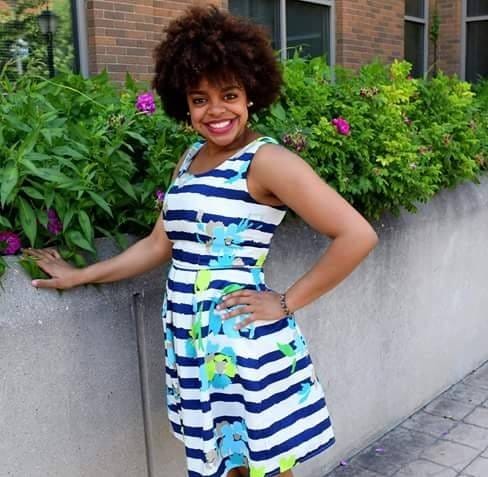Engaging Muslims, Countering Islamophobia Immersion Trip 2017
Marquette students traveled to two US cities with the largest Muslim population in country to learn about the Muslim American experience

Many students use spring break to soak up some much needed sun after a long Milwaukee winter. However, seven students from Marquette chose a destination that was not — Cancun or Florida, but three cities in Michigan for a week-long immersion trip. Detroit, Dearborn, and Hamtramck, Michigan are the cities with the largest concentration of Muslims in America. While Marquette offers many opportunities for outreach programs, the Detroit trip’s religious and cultural immersion objective is wholly unique.
Throughout the week, students were exposed to the religion of Islam and were able to explore many contours of American Muslim life. Activities included meeting with religious leaders, scholars, community activists, and elected officials and performing community service. Students visited mosques to learn about the Islamic faith, prayer, traditions, local challenges, and even a little bit about Islamic architecture. For many attending the trip, the opportunity to eat great ethnic food added an unexpected perk to the week.



Student Reflections
Each student who attended the trip emerged with a better understanding of Islam and a new perspective on the American Muslim experience. More importantly, many students now feel compelled to stand up to Islamophobia and spread messages of inclusivity and welcome.

Motivations to Attend this Trip
“The overall purpose of the trip was for each participant to gain more knowledge on Islam, Arab Americans, and their experiences with Islamophobia in the United States. While this was high on my list of reasons for applying for this program, I had personal motives for participating. My father converted to Islam before my sister and I were born and [we were taught] the main pillars of the religion along with simple Arabic. Similar to other children in Sunday school, my sister and I were raised on stories from the Qur’an. As we grew up, my sister and I both leaned away from Islam and any form of organized religion while my father continued to explore his identity as an African American Muslim.
When Nadja arrived to her first theology class at Marquette, she recognized intense similarities between Catholicism and Islam, subsequently prompting Simmonds to rekindle her interests about different religions and expand her knowledge of Islam. After the trip, she plans to actively fight Islamophobia explaining:
“There are so many stigmas and stereotypes around American Muslims that have been countered because of participating in this program. The purpose is to actively fight against Islamophobia when we return to campus, and that should not be a difficult feat. With the knowledge that we have gained, countering false thoughts about Arab Americans and Muslims on campus should almost seem second nature.”
Transformative
Claire Keyes, a rising Junior, was surprised how much she absorbed from the week.

“I don’t think I realized just how much I would learn and how drastically my views and understanding of Islam and Arab-Americans would change. I was struck by how devoted each person we met with was to their faith, their kindness, their openness to sharing their faith, their passion for social justice, and their desire to embrace diversity”
Claire also experienced profound changes in the way she understood Muslim women’s role in the community.
My view of Muslim women changed drastically throughout this trip. Prior to the trip, I did not necessarily think that Islam oppressed women, but I did not understand the need for separation when praying and the use of the hijab. After meeting with the students at University of Michigan-Dearborn, I developed a strong understanding of and respect for Muslim women. Hearing how wearing the hijab allows these women to feel confident in themselves made me reflect on how I view myself and whether or not I am truly confident in myself, or if I feel the need to seek validation from other people.”
Multicultural Competency
Stephanie Hood describes her overall experience on the trip and its impacts. As a counselor-in-training, she believes it is her ethical duty to be multiculturally competent.

“This trip is something I will never forget and was truly humbled to have attended. This trip allowed me to learn about Muslims in an in-depth way that a course may not provide. I believe immersion is the best way to understand a culture. I had limited knowledge about Islam and everyday life of Muslims and this trip changed my perspective tremendously. This population is portrayed as being violent, oppressing women, radical, terrorists and many more negative terms but in reality is the complete opposite.”
Interfaith Solidarity
Alexis Garcia, another student who attended the trip, appreciates the amount of diversity within the Muslim community and admires the community’s ability to to coexist. Alexis plans to use her insights from the trip in her professional career.

“I feel that it is best to accept and acknowledge your differences, but find strength and unity in your similarities. Coexistence does not mean you need to be identical. It means being able to find what brings you together and build upon that. I saw that personified when the Mosque in Hamtramck had their controversy over their Call to Prayer. The Imams talked about how non-Muslims in the community and people from other faiths came together and rallied behind their cause.”
Respecting and Honoring Differences
Senior Jasmine Judon wishes that everyone could experience a trip like this.

“I think if people went into it open-minded and unbiased, they could see for themselves and truly believe that Muslims are a harmless group of people, whose main concern is to live out the commandments of God, similar to that of devote Christians. It’s saddening the amount of adversities that Muslims have to face solely because they don’t follow Christianity and for whatever reason Americans, especially Christian-Americans, have a difficult time understanding and accepting people who are different from them and don’t follow mainstream rules and traditions.”

